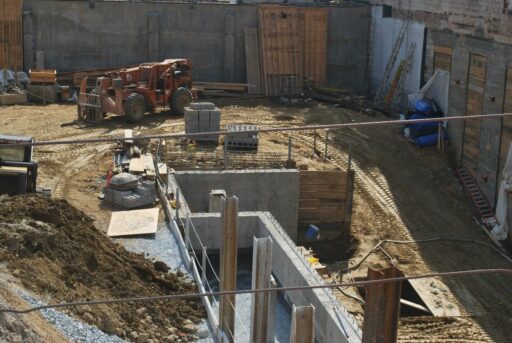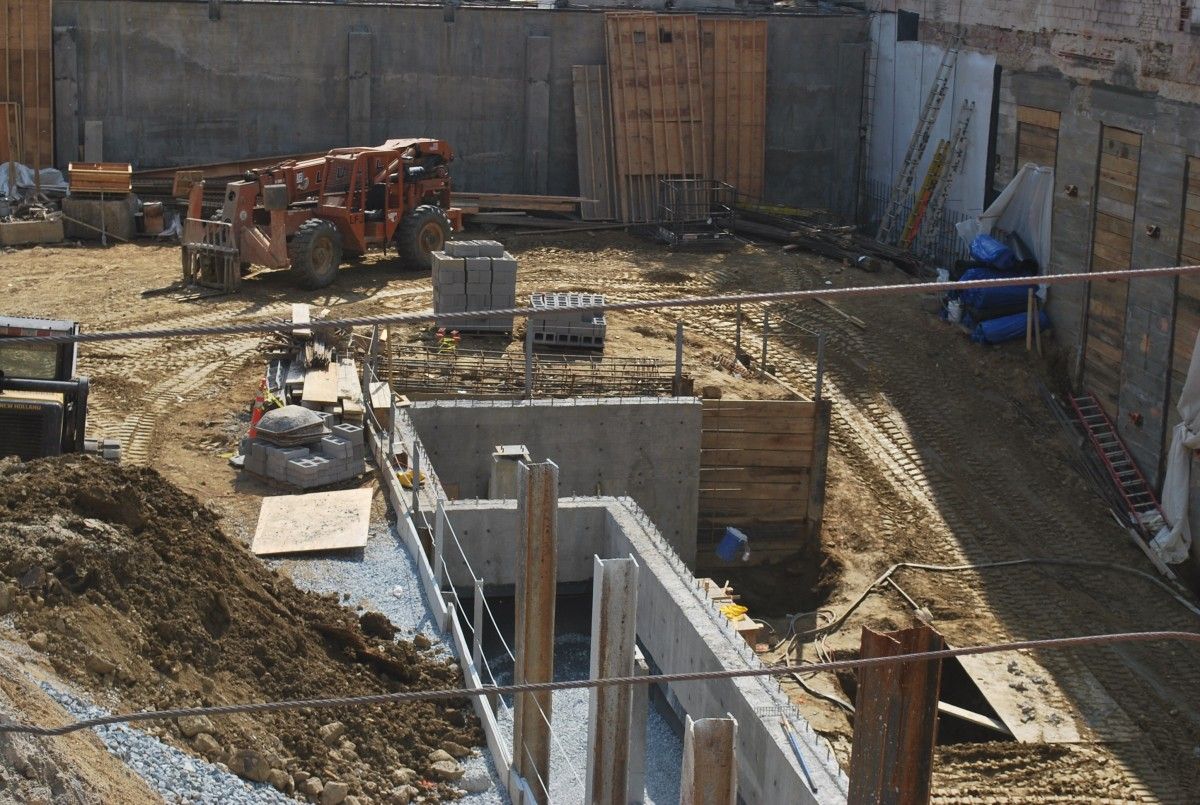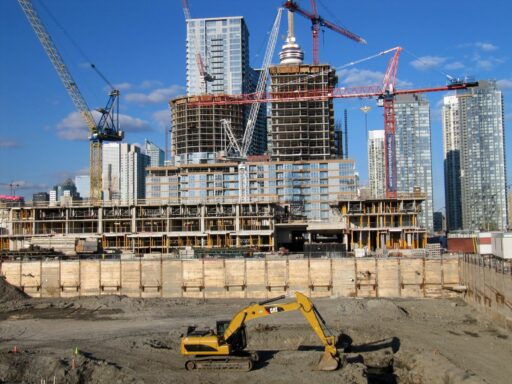In any construction project, the role of a general contractor is paramount, serving as the central figure that brings together various elements of the work, from managing subcontractors to ensuring that the project stays on budget and schedule. This guide aims to provide an in-depth look into the world of general contracting, offering essential insights into selecting, managing, and collaborating with a general contractor for a successful construction project.
Key Takeaways
- Understanding the comprehensive role of a general contractor is crucial for the success of any construction project.
- Selecting the right general contractor involves assessing qualifications, reviewing past projects, and understanding the bidding process.
- Knowledge of construction law, licensing, and insurance is essential for navigating the legal aspects of general contracting.
- Effective project management with a general contractor includes setting clear expectations, budgeting wisely, and planning for potential delays.
- Being prepared to troubleshoot common issues such as delays, disputes, and quality control is key to maintaining a smooth construction process.
Understanding the Role of a General Contractor

Defining the General Contractor’s Responsibilities
A general contractor holds the reins of a construction project, ensuring that every detail aligns with the client’s vision and regulatory requirements. Their overarching role is to manage the entire construction process from start to finish. This includes a wide array of tasks that are critical to the project’s success.
Key responsibilities of a general contractor encompass:
- Overseeing the day-to-day operations on the construction site
- Managing and coordinating the work of subcontractors
- Ensuring the project adheres to building codes and safety regulations
- Handling the procurement of materials and necessary permits
It’s essential for a general contractor to maintain a high standard of quality throughout the construction process, as they are ultimately accountable for the work delivered.
In Mesa County, CO, and beyond, the role of a general contractor is pivotal. They are not only responsible for the physical construction but also for the legal and administrative aspects that come with it. Researching and evaluating potential contractors is a crucial step in forming a successful partnership for your construction project.
The Importance of a General Contractor in Construction Projects
A general contractor (GC) serves as the pivotal force in a construction project, ensuring that every aspect of the build is executed with precision and efficiency. They are the central hub of communication and coordination, managing the myriad of tasks that need to be synchronized for successful project completion.
- Overseeing subcontractors: GCs hire and manage teams of skilled workers to perform specialized tasks.
- Obtaining permits: They navigate the complex legal requirements to ensure the project complies with local regulations.
- Purchasing materials: GCs source and procure all necessary materials, often leveraging relationships for better pricing.
- Ensuring adherence to codes and safety standards: They maintain a safe work environment and ensure that the construction meets all relevant codes.
The role of a general contractor is multifaceted, encompassing everything from workforce management to regulatory compliance. Their expertise and oversight are indispensable for the timely and within-budget completion of a project.
How General Contractors Collaborate with Subcontractors
General contractors are pivotal in orchestrating the various trades and expertise required to complete a construction project. They appoint subcontractors to execute specific parts of the project, ensuring that each task is handled by specialists. This collaboration is not just about delegation; it involves a complex network of communication, coordination, and oversight to maintain project integrity and timelines.
The process of working with subcontractors typically involves several key steps:
- Identifying the project needs and the specific skills required
- Selecting subcontractors based on their qualifications and past performance
- Negotiating terms and conditions of the subcontract
- Coordinating schedules and work sequences to avoid conflicts
- Monitoring subcontractor performance to ensure quality and adherence to timelines
A well-defined scope of work and clear communication channels are essential for a seamless integration of subcontractor services into the larger project plan.
By effectively managing these relationships, general contractors can leverage the specialized skills of subcontractors to enhance the overall quality and efficiency of the construction project. It is a delicate balance of trust and control that, when managed well, can lead to successful project outcomes.
Selecting the Right General Contractor for Your Project

Assessing Qualifications and Experience
When embarking on a construction project, the selection of a skilled and reliable general contractor is paramount. Check Credentials and Licenses to ensure that the contractors you’re considering are legally authorized and adequately insured to operate in your area. Licensing requirements can vary, so it’s essential to verify their credentials with the relevant licensing board and inquire about any past complaints or disciplinary actions.
Selecting a contractor who values workmanship, customer service, and compliance is crucial. Assess needs, choose specialized services, screen for quality, read reviews, and interview contractors for a successful home improvement project.
Reviewing a contractor’s portfolio is a direct window into their past achievements and style. Request portfolios or case studies and look for projects similar in scope and scale to yours. This will help you gauge their experience and expertise. Conduct Interviews and Site Visits to discuss your project in detail, assess their communication style, and evaluate their organization and management skills on current projects.
Understanding a contractor’s history can be further enhanced by considering how they have been pre-qualified for projects. An RFQ process indicates that a contractor has been vetted and is considered reliable enough to be on a shortlist for future bids. This pre-qualification is a testament to their tangible experience and theoretical knowledge.
Evaluating Past Projects and Client Testimonials
When selecting a general contractor, reviewing their past projects and client testimonials is crucial for understanding their capability and reliability. Request portfolios or case studies to assess their workmanship and experience with projects similar to yours.
Seek references and reviews from past clients to get insights into their satisfaction levels and the contractor’s ability to meet expectations. Online review platforms and social media can provide a broader perspective on the contractor’s reputation.
Conducting interviews and site visits allows you to discuss your project in detail, ask pertinent questions, and observe their current projects firsthand. This step is essential for evaluating their professionalism and management skills.
Learning from past projects is vital for contractors to improve efficiency and reduce rework rates in future projects. This indicates a commitment to growth and quality in their services.
Remember, a contractor’s history can be a reliable indicator of their future performance on your project.
Understanding the Bidding Process and Contract Negotiations
The bidding process is a critical phase in construction project management, where project owners receive competitive proposals from various contractors. It’s essential to understand that this process is not just about finding the lowest bid, but also about securing the best value for your project. Here’s a simplified breakdown of the steps involved:
- Bid Solicitation: The project begins with an invitation for contractors to submit their bids.
- Bid Selection: After receiving bids, they are evaluated based on cost, quality, and expertise.
- Contract Formation: The winning bid leads to negotiations and the finalization of the contract.
During contract negotiations, it’s crucial to clarify all terms and conditions, ensuring that both parties have a mutual understanding of the project scope, timelines, and payment schedules.
Remember, negotiated bidding can be an option when you have a preferred contractor in mind, often due to the specialized nature of the work. This approach allows for direct negotiations, potentially streamlining the process. However, it’s vital to conduct a thorough bid leveling to compare bids on a fair and accurate basis, taking into account all cost elements and minimizing biases.
The Legal Landscape of General Contracting

Navigating Construction Law and Contracts
Understanding and navigating construction law and contracts is crucial for the success of any construction project. These legal documents define the responsibilities, risks, and expectations of all parties involved. It’s essential to be well-versed in the types of contracts used, such as AIA contracts, and their implications on project management and outcomes.
When dealing with construction contracts, it’s important to recognize the various clauses that can affect project execution. For instance, the private and public prompt pay acts provide critical rights for contractors and subcontractors, including the right to stop work if payment issues arise.
Familiarity with construction law not only helps in avoiding legal pitfalls but also empowers you to enforce your rights and ensure fair treatment throughout the construction process.
Here are some key considerations when navigating construction contracts:
- Understanding the structure and negotiation of contracts
- Recognizing the importance of clauses related to payment, delays, and dispute resolution
- Implementing strategies for effective contract management and enforcement
Licensing, Insurance, and Bonding Requirements
Ensuring that a general contractor is fully licensed, insured, and bonded is a critical step in safeguarding your construction project. Insurance and bonding serve as a testament to a contractor’s financial stability and adherence to safety standards. Each state has its own set of regulations and requirements for licensing, which may include a state-mandated exam, years of experience, and educational qualifications.
It’s essential to verify a contractor’s credentials with the local licensing board and to be aware of any past complaints or disciplinary actions.
The licensing process can be rigorous, often involving fingerprinting, criminal background checks, and exams to ensure that contractors meet the high standards expected in the industry. While not all states require a license for smaller jobs, specialized work such as plumbing or electrical always demands a state license.
- Check Credentials: Confirm that the contractor is licensed to work in your area.
- Insurance Verification: Ensure they have the necessary insurance to protect against potential liabilities.
- Bonding: Verify that they are bonded, providing additional protection for your project.
Remember, the absence of proper licensing or insurance can lead to significant legal and financial risks, making due diligence a non-negotiable part of the hiring process.
Dealing with Construction Permits and Inspections
Navigating the permit process is a critical step in ensuring your construction project adheres to local zoning laws and building codes. Addressing documentation issues promptly can expedite the issuance of permits, allowing work to commence without unnecessary delays. It’s essential to have complete and compliant building plans to avoid extensive changes that may be required if the design doesn’t meet local building codes.
Permit expediters can be invaluable by identifying potential problems before submitting your application, thus streamlining the process.
Here are some tips for a smooth permitting process:
- Ensure that your project plans are complete and comply with all local building codes.
- Consult with permit expediters to pre-emptively address potential issues.
- Understand the importance of permits for safety, compliance, value preservation, and avoiding penalties.
Remember, while the process might seem daunting, it is in place to ensure the safety and legality of your construction project. Proper preparation and knowledge are key to navigating the world of construction permits and inspections successfully.
Managing Your Project with a General Contractor

Setting Clear Expectations and Communication Channels
Establishing clear expectations and robust communication channels with your general contractor is the cornerstone of a successful construction project. Effective communication not only sets the expectations right but also helps in adhering to the schedule and minimizing miscommunication. It is essential to clarify the scope of work to prevent misunderstandings that can lead to increased costs and scheduling issues.
Transparency around budget and payment schedules is crucial. Discuss your budget constraints upfront and ensure that the contractor can work within your financial parameters. It’s also important to inquire about their payment schedule and methods to avoid any surprises.
Communication and project management go hand in hand. Choose a contractor who is responsive, accessible, and proactive. Establish a clear chain of command and agree on communication protocols to ensure that all parties are informed and collaborative solutions are found promptly, despite any project shifts.
Budget Management and Cost Control Strategies
Effective budget management is crucial for the success of any construction project. By tracking all actual expenses against the allocated budget, project managers can make necessary adjustments to prevent overruns. Utilizing digital financial tools, such as project management software, enhances the ability to manage budgets, changes, and Schedule of Values (SOVs).
To maximize value, general contractors should focus on strengthening business practices, while specialty contractors can enhance productivity and margins by concentrating on efficiency and profitability.
Negotiation skills are essential when discussing budgeting and resource allocation. Coupled with effective communication, these skills ensure that all stakeholders remain informed and in sync. A deep understanding of construction methods, codes, and regulations is also vital for maintaining control over project costs.
Here are some key strategies for budget management and cost control:
- Implementing project management information systems (PMIS) for integration and real-time data analysis.
- Utilizing forecasting and advanced customized reporting to streamline invoicing and subcontractor payments.
- Allocating resources with precision to avoid excessive allocation or underutilization.
- Ensuring real-time communication among project participants to facilitate quick decision-making.
Timeline Planning and Handling Project Delays
Effective timeline planning is crucial for the successful completion of any construction project. A comprehensive project plan is developed during the initial phases, outlining all tasks, milestones, and timelines. This plan serves as a roadmap, guiding the project team through execution and helping to avoid obstacles.
In the face of unforeseen challenges, such as design changes or scope modifications, the general contractor must adapt quickly. They evaluate the impact on the schedule and overall project objectives, ensuring that any adjustments preserve the integrity of the project. Open lines of communication with the project owner are essential to keep them informed of any developments.
The ability to swiftly integrate changes into the project’s overall schedule and progression is a testament to a contractor’s expertise in managing complex construction processes.
Here is a simplified example of a project timeline:
| Phase | Duration | Key Activities |
|---|---|---|
| Preconstruction | 2 months | Design reviews, permitting, procurement |
| Construction | 6 months | Building, inspections, compliance |
| Post-construction | 1 month | Final inspections, handover |
It’s important to note that this is a basic illustration and actual project timelines will vary based on the specific details and scope of work.
Troubleshooting Common Issues in General Contracting

Addressing Delays and Overruns
Delays and cost overruns can significantly impact the success of a construction project. Effective management and proactive measures are essential to mitigate these risks. One critical tool for managing project finances is the Schedule of Values (SOV), which outlines the project’s financial components and progress billing.
- Include contingency: It’s crucial to anticipate uncertain events and include contingency costs in the SOV. Unexpected events can disrupt progress and lead to financial losses if not accounted for.
- Update regularly: As the project advances, updating the SOV is vital for evaluating progress and ensuring accurate billing.
Maintaining open lines of communication with the project owner is imperative when addressing changes that affect the project timeline or budget. This transparency allows for timely decisions and adjustments, preserving the integrity of the project.
Resource management is another key aspect of preventing delays. The general contractor must continuously manage and reallocate resources such as labor, materials, equipment, and subcontractors to adapt to any changes in the project plan. This meticulous coordination helps maintain a seamless workflow and prevents bottlenecks that could stall the project.
Resolving Disputes and Handling Change Orders
In the dynamic environment of construction, change orders and modifications are a given. The ability to adapt and manage these changes is crucial for maintaining project momentum. AIA contracts serve as a guide, providing a structured approach to modifications, which helps in minimizing disputes and ensuring the continuity of the project.
Effective dispute resolution is a key competency for general contractors. It involves not just legal knowledge but also negotiation skills, which are paramount when addressing budgeting and resource allocation. Contractors must navigate through changes with adaptability and foresight, maintaining harmony among team members and clients.
When unforeseen circumstances arise, the contractor’s role expands to include evaluating the impact on schedule, budget, and overall project objectives. This evaluation is essential for formulating a strategic path forward, preserving the integrity of the project.
Here are some essential steps for managing change orders effectively:
- Record the line items with ample details to prevent any gaps or confusion at later stages.
- Ensure open lines of communication with the project owner for prompt updates, facilitating informed decisions and collaborative solutions.
- Customize the change order process to the specifics of the project to ensure efficient management and team synchronization.
Ensuring Quality Control and Safety Compliance
Ensuring that every aspect of a construction project adheres to the highest standards of quality and safety is paramount. Inspections and quality control procedures are critical for evaluating the work against planned specifications. These evaluations help to identify any deviations or discrepancies, ensuring that each segment of work aligns with the project’s design, quality standards, and safety requirements.
Compliance with building codes, zoning regulations, and safety standards is not just about ticking boxes; it forms the backbone of legal and ethical construction practice. The general contractor’s role extends to financial management, making cost-effective decisions that influence the project’s economic footprint while maintaining control over the budget.
As part of ensuring quality and safety, a formal review with all project stakeholders is essential. This process gathers feedback and identifies areas for improvement, turning each project into an opportunity to enhance efficiency and project management expertise.
Additionally, the superintendent plays a crucial role in ensuring that subcontractors adhere to project specifications, quality standards, and safety protocols. This fosters a cohesive and productive working environment, which is essential for the timely and successful completion of the project.
Conclusion
As we wrap up this ultimate guide to navigating general contractor services, it’s clear that the role of a general contractor is pivotal to the success of any construction project. From understanding their responsibilities to selecting the right contractor for your specific needs, the journey requires attention to detail, thorough research, and a clear vision of your project’s goals. Remember, the time and effort invested in choosing a competent and reliable general contractor will set the foundation for a smooth construction process and a quality finished product. Whether you’re building from scratch or renovating an existing structure, the insights provided in this guide aim to empower you with the knowledge to make informed decisions and achieve the results you desire.
Frequently Asked Questions
What are the primary responsibilities of a general contractor?
A general contractor is responsible for overseeing the construction project, managing subcontractors, ensuring quality control, maintaining safety standards, and handling the overall coordination of the project from start to finish.
Why is choosing the right general contractor important for my construction project?
Selecting the right general contractor is crucial because they are the central figure in the execution of the project. They ensure that all aspects of the project, including timeline, budget, and work quality, are managed effectively.
How do I assess the qualifications and experience of a general contractor?
To assess a general contractor’s qualifications and experience, you should review their past projects, check client testimonials, verify their licensing and insurance, and evaluate their reputation within the industry.
What legal aspects should I consider when working with a general contractor?
When working with a general contractor, it’s important to consider construction law, contracts, licensing requirements, insurance, bonding, and the necessary construction permits and inspections.
How can I effectively manage my project with a general contractor?
Effectively managing your project with a general contractor involves setting clear expectations, establishing open communication channels, planning a realistic timeline, and implementing budget and cost control strategies.
What should I do if I encounter issues such as delays or quality concerns during the construction process?
If you encounter delays or quality concerns, communicate promptly with your general contractor to resolve the issues. Discuss potential solutions, consider change orders if necessary, and ensure adherence to safety and quality standards.





